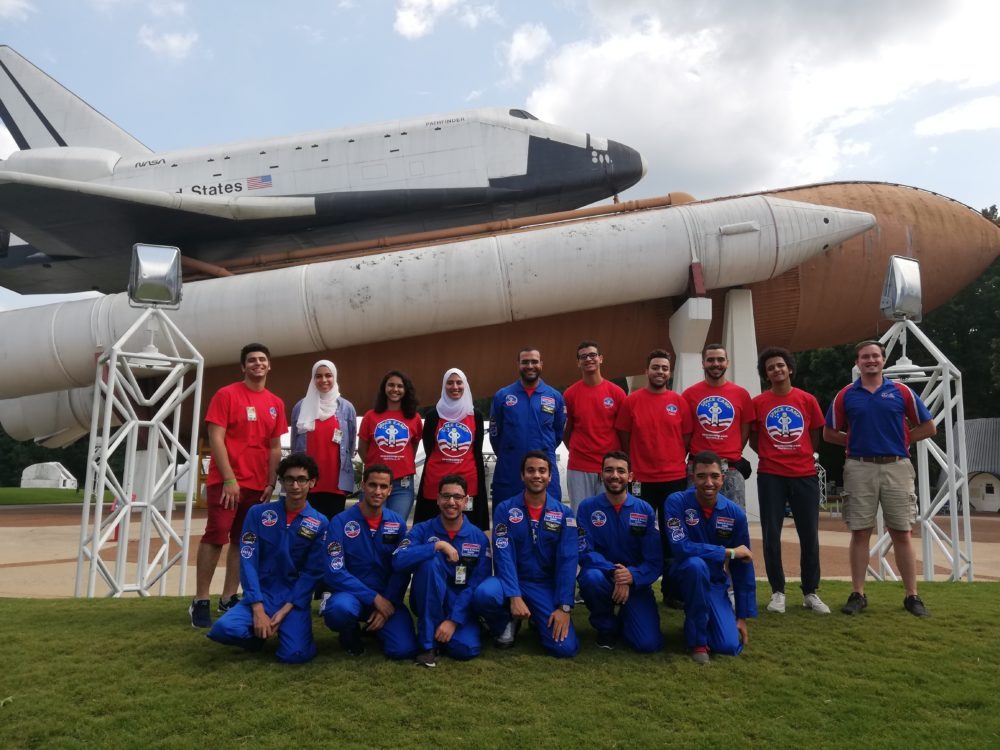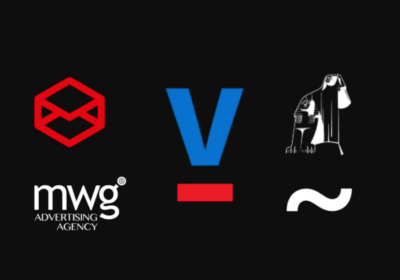Egypt’s astronomy fanatics and science enthusiasts were once again engaged in NASA Space Apps Cairo‘s hackathon with its 2020 edition, which was virtual for the first time ever from October 2 to October 10. As it takes place during the novel coronavirus pandemic, this year’s hackathon shed light on making a difference from afar while highlighting its core theme; “Take Action”.
With cutting-edge technological triumphs and sustainability on the horizon, NASA Space Apps Cairo has had an ongoing 5-year accumulation of success stories to save our planet and help us get over the obstacles we encounter in space.
NASA’s annual hackathon attracts an abundance of people because of the ideology it emphasizes; that anyone and everyone can make a difference. Collaborative brainstorming and problem-solving are of an all-hands-on-deck nature and have no limitations in regards to who can pitch an idea to better the lives of humans.
This year’s innovative participants were grouped into six formations; each tackling unique extra-terrestrial, environmental, and educational challenges. Even if it takes producing 3D immersive simulators of the worlds beyond our planet to educate people and raise awareness on certain issues, the participating teams were ready to pitch it!
The global winners this year will get the opportunity to travel to present their project to NASA and their affiliated partners as well as travel with the Space Apps Global Organizing Team to witness NASA’s spacecraft launch; for which they organize fundraising events to gather the finances needed to travel. These winners will also be able to further expand their proposed ideas and solutions using NASA data resources as well as their partners’. In addition to that, this year’s hackathon global nominees get to attend NASA’S virtually held boot-camp.
This year, our Egyptian geniuses faced six mind-boggling categories all concerned with space-related challenges and issues to tackle: Observe, Inform, Sustain, Create, Confront and Connect.
The Out-of-the-Box Innovators at This Year’s Hackathon
1. Astro: Winners of The People’s Choice Award
Challenge: “Create a Mascot”
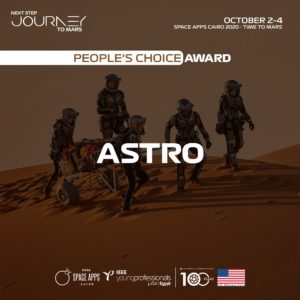
Aiming to educate the upcoming generation about space and what lies beyond planet Earth, the Astro group’s project aims to collect, filter, and convey NASA’s space and Earth-related data in simplified video and game-like content for young adults and children to encourage them to learn more about space while having fun doing so.
Learn more about their educational program by clicking here.
2. Hot Spot: Winners of the Confront Category & Space Apps Cairo 2020 Global Nominee
Challenge: “Spot That Fire V 3.0”

Tackling an unfortunately fast-growing issue that’s eating up our natural habitat; Hot Spot’s focus was wildfires. Spot That Fire V 3.0 is a machine-learning driven project with a data analysis system that notifies users of ways to fight and evade upcoming wildfires; in hopes to preserve what is left of wildlife. Using Augmented Reality (AR) and Air-Quality-Index (AQI) technology, Hot Spot truly confronted a pressing issue.
Read more on how they faced the spread of wildfires by clicking here.
3. Apollo 6: Winners of the Observe Category & Space Apps Cairo 2020 Global Nominee
Challenge: “Scanning for Lifeforms”
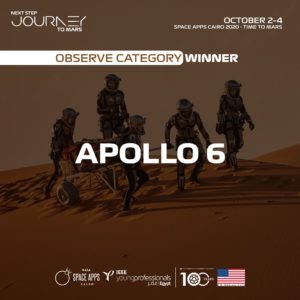
As per their project name, “Scanning for Lifeforms” implies, Apollo 6’s drone-based lifeform-detecting application addressed the globally urgent problem of biological diversity. As the word “scan” suggests, Apollo 6’s mission was to detect biological diversity on Earth, track its progression, and report that progression as soon as possible to scientists and humans.
Read more on how Apollo 6’s tracking system may have improved our lives for decades, if not centuries to come through clicking here.
4. Mission Crackers: Winners of the Inform Category
Challenge: “Mission to Planet Earth: A Digital History”
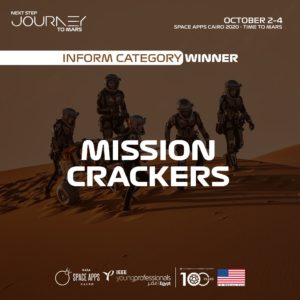
With a vision to broaden people’s perception and knowledge about outer space, Mission Crackers took it upon themselves to bridge the gap between what we think NASA does and what its line of work actually includes. Through engaging gameplay, Mission Crackers incorporates education with fun. While playing, the user gets exposed to an array of space-related knowledge far beyond their initial understanding. To make sure the information has nested itself within the user’s mind, the game ends with a quiz-like segment.
Read more about their fact-infused game here.
5. Delta: Winners of the Sustain Category
Challenge: “Sleep Shift Scheduling Tool”

Through their innovation, Delta’s team pitched a solution to sleep, nutrition, and fitness management. Incorporating both space and Earth analytics, Delta offered a simplified user interface to manage and adjust your sleep, nutrition levels, physical activity, travel, and even medication. Not only does it reform you into a physically better state, but it also makes you activate and access your brain much better because of it.
If you’d like to learn more about their application, click here.
6. Game of Throws: Winners of the Create Category
Challenge: “Breakthrough”

The Breakthrough challenge is all about emphasizing the crucial need for stronger and faster engines to travel among galaxies through a game. The Game of Throws team responded to it with a game that follows the last remaining human in a future where the world was destroyed by our damage to the environment and its devastating consequences. He uses his spaceship to travel across galaxies and gather materials and resources from ancient colonies in search of another habitable planet. Subsequently, he utilizes these findings to create breakthrough spacecraft propulsion fit for his quest.
You can learn more about The Last Man’s journey here.
7. Martians: Winners of the Connect Category
Challenge: “Can You Hear Me Now?”
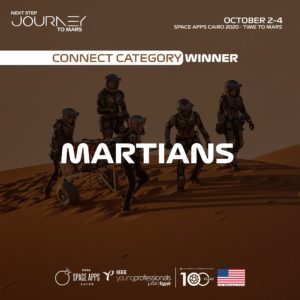
Last but certainly not least is another videogame project in the race by the Martians team. In the course of the game, the player is faced with a challenge every time he reports his findings back to Earth. What gives this pritch an edge is its ambitious imitation of an actual experience on Mars. You have to face the troubles posed by venturing into the red planet, like Martian dust hindering your communication devices and channels. Subsequently, this game not only educates the player’s mind on how to deal with such circumstances but also pushes it to adopt the same decision-making process in real life.
You could see more details more about Mars here.
This event showcased some of the youngest as well as the brightest of minds in Egypt who rise up to today’s growing challenges. With five prosperous years and its sixth one this October, it doesn’t look like NASA is turning a blind eye to Egypt’s aspiring scientists anytime soon.



















